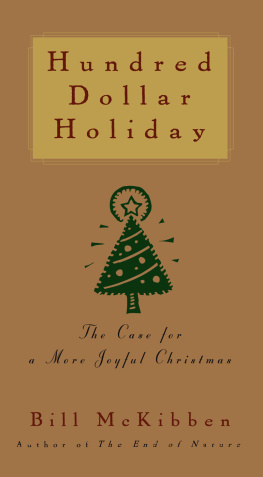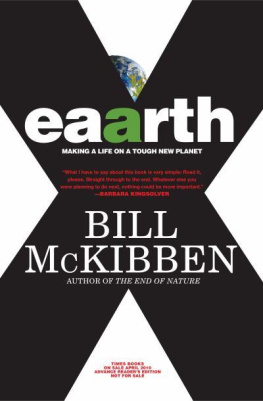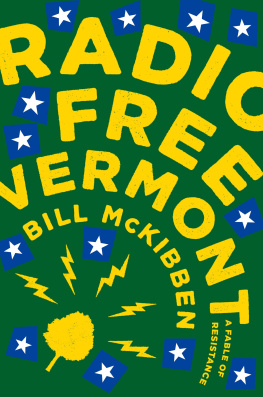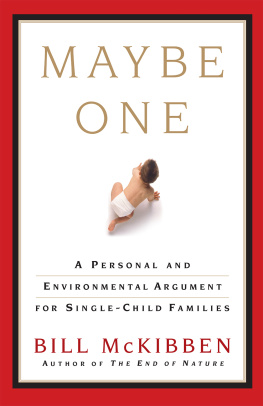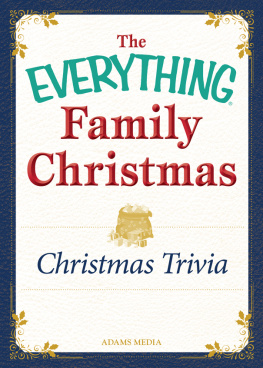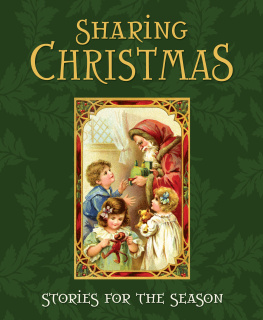Thank you for downloading this Simon & Schuster eBook.
Join our mailing list and get updates on new releases, deals, bonus content and other great books from Simon & Schuster.
C LICK H ERE T O S IGN U P
or visit us online to sign up at
eBookNews.SimonandSchuster.com


Contents
For Eleanor Kathryn McKibben, on her first Christmas

INTRODUCTION
Who Stole Christmas?
IVE BEEN CALLED MY SHARE of names, but the only one that ever really stung was grinch. The year that a few friends and I started the Hundred Dollar Holiday program through our rural Methodist churches, several business-page columnists in the local papers leveled the G-wordwe were dour do-gooders, they said, bent on taking the joy out of Christmas. And, frankly, their charges sounded plausible enough. After all, we were asking our families, our friends, and our church brethren to try and limit the amount of money they spend on the holiday to a hundred dollarsto celebrate the holiday with a seventh or an eighth of the normal American materialism. Theres no question that would mean fewer Pop guns! And bicycles! Roller skates! Drums! Checkerboards! Tricycles! Popcorn! And plums! Not to mention Playstations, Camcorders, Five Irons, and various Obsessions. Perhaps my heart was two sizes too small.
So it was with some trepidation that I carefully reread my daughters well-worn copy of the Seuss classic, neatly shelved with Green Eggs and Ham, Horton Hears a Who , and all the other secular parables. There on the cover was the Grinch himself, red eyes gleaming malevolently as he plotted the sack of Whoville. He hated the noise of the kids with their toys, and he hated the feast of rare Who-roast-beast, and most of all he hated the singing. Why, for fifty-three years Ive put up with it now! I MUST stop this Christmas from coming!... But HOW? Simple enough, of course. All he had to do was loot the town of its packages, tinsel, trees, food, even the logs in the fireplace. Even the crumbs for the mice disappeared back up the chimney.
But of course it didnt work. That Christmas morning, listening from his aerie for the wailing from Whoville below, the Grinch heard instead the sound of singing. Christmas had come. It came without ribbons! It came without tags! It came without packages, boxes, or bags! After puzzling three hours till his puzzler was sore, the Grinch was forced to conclude that Christmas came from no store.
And so I breathed a sigh of real relief. Not only was I not a grinch trying to wreck the meaning of Christmas, it was abundantly clear who the grinches of our culture really are: those relentless commercial forces who have spent more than a century trying to convince us that Christmas does come from a store, or a catalogue, or a virtual mall on the Internet. Every day, but especially in the fall, they try their hardest to turn each Cindy Lou Who into a proper American consumertry their best to make sure her Christmas revolves around Sony or Sega, Barbie or Elmo.
But Dr. Seusss message went deeper for me. You see, when wed begun thinking about Hundred Dollar Holidays, it was mostly out of concern for the environment or for poor people. Think of all that wrapping paper, we said, all those batteries, all that plastic. Think of all those needy people who could be helped if we donated our money to them instead. Think of all those families who went deep into debt trying to have a proper Christmas.
All those issues are important, and Ive spent much of my life writing about and working on them. But the more we progressed on our little campaign, traveling around our region having evening meetings at small rural churches like the one I attend, the more we came to understand why people were respondingindeed, why we had responded to the idea. It wasnt because we wanted a simpler Christmas at all. It was because we wanted a more joyous Christmas. We were feeling cheatedas if the season didnt bring with it the happiness we wanted. We were Christians, and we felt that the story of the birth of this small baby who would become our Savior, a story that should be full of giddy joy, could hardly break through to our hearts amid all the rush and fuss of the season. And many of our friends, Christian or not, felt that too much of the chance for family togetherness was being robbed by the pressures of Christmas busyness and the tensions of gift-giving.
Christmas had become something to endure at least as much as it had become something to enjoysomething to dread at least as much as something to look forward to. Instead of an island of peace amid a busy life, it was an island of bustle. The people we were talking to wanted so much more out of Christmas: more music, more companionship, more contemplation, more time outdoors, more love. And they realized that to get it, they needed less of some other things: not so many gifts, not so many obligatory parties, not so much hustle.
Once, after an evening program filled with carol-singing and kids stories and general proselytizing for the idea of simpler Christmases, one woman said to me: Thank you for giving me permission to celebrate Christmas the way Ive always wanted to. What she meant, I decided, was that the message from the pulpit allowed her to stand up to the pressures of the advertisers, of the glossy magazines with their endless decorating tipsto stand up to the voice that had been planted in the back of her head that told her what Christmas should be. What she meant, too, was that by giving her a targeta hundred dollar Christmasour small campaign had provided her with an anchor to hold her fast amid the gale of holiday commercialism. Theres nothing magic about a hundred dollars; truth be told, I chose the name because it sounded good with holiday. And obviously big families may decide to spend more at Christmas, and small ones may be happier spending less. But the hundred dollar goal seems to work well as a kind of check, a way of saying that your commitment to a better Christmas goes beyond merely complaining or telling yourself that this year it will be different.
None of this means that changing your Christmas patterns will be simple. It may cause tensions with other members of your extended family, or with kids who have grown up thinking of Christmas morning as a lootfest. It may take you years to build down to a Hundred Dollar Holiday, years of talking and writing to your near and dear. In an obsessively commercial society, it will always seem a little odd to many.

But it will be worth it. I am writing this in April, and already I am looking forward to Christmas, secure in the knowledge that it really will be a time of calm and happiness, a season to linger in and not to get through. A time to celebrate the birth of a Savior. This book offers plenty of practical ideas for new ways of celebrating. But its as much a why-to book as a how-to bookits my stab at a way to think about Christmas in our place and time. Christmas, this burst of light at the darkest season of the year, is too precious to surrender to the various grinches; its time to build Whovilles in our families, our communities, and our nation.
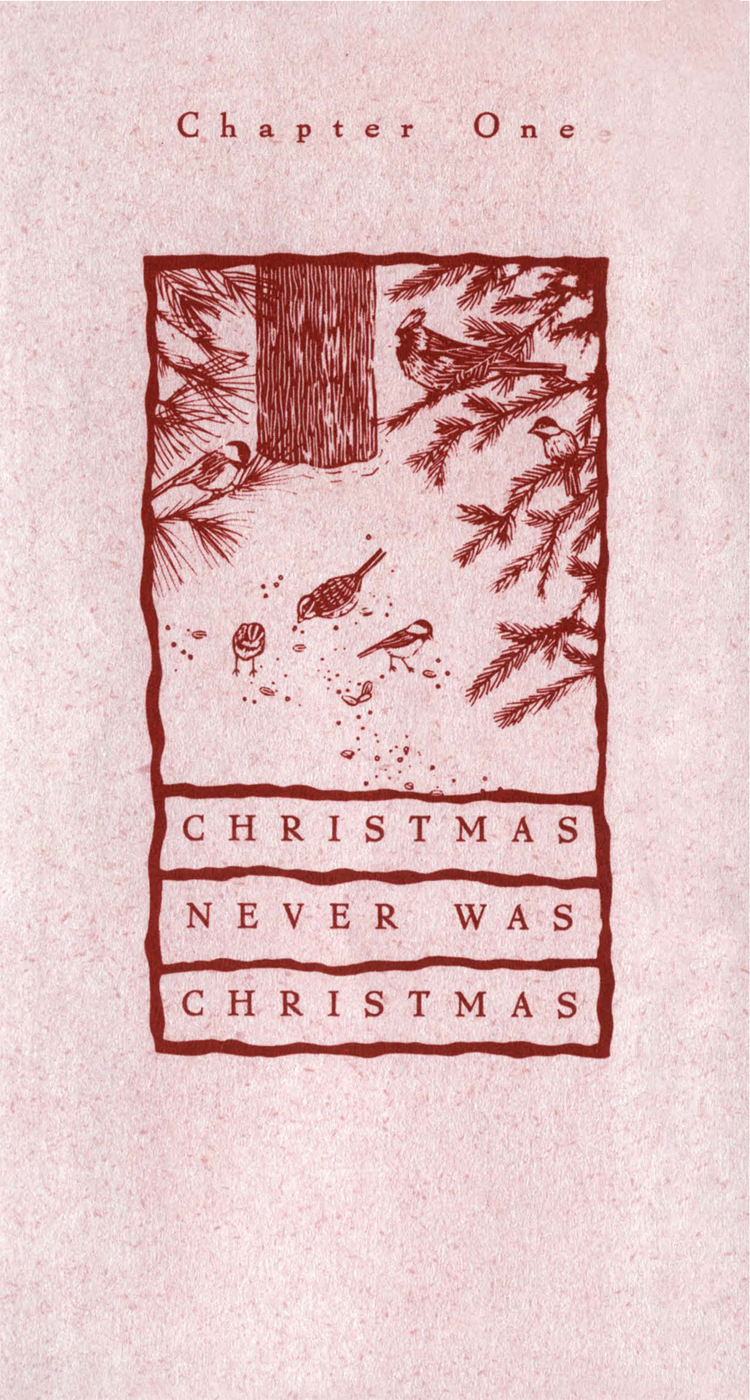
Next page
